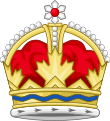
Back Eleccions al Canadà Catalan Etholiadau yng Nghanada Welsh Wahlen in Kanada German Εκλογές στον Καναδά Greek انتخابات در کانادا Persian Élections au Canada French Kanadai választások Hungarian Eleições no Canadá Portuguese Alegeri în Canada Romanian Выборы в Канаде Russian
 |
|---|
Canada holds elections for legislatures or governments in several jurisdictions: for the federal (national) government, provincial and territorial governments, and municipal governments. Elections are also held for self-governing First Nations and for many other public and private organizations including corporations and trade unions. Municipal elections can also be held for both upper-tier (regional municipality or county) and lower-tier (town, village, or city) governments.
Formal elections have occurred in Canada since at least 1792, when both Upper Canada and Lower Canada had their first elections. Canada's first recorded election was held in Halifax in 1758 to elect the 1st General Assembly of Nova Scotia.[1]
All Canadian citizens aged 18 or older who currently reside in Canada as of the polling day[2] (or at any point in their life have resided in Canada, regardless of time away) may vote in federal elections.[3] The most recent Canadian federal election occurred on September 20, 2021.
Elections for other levels of government may have additional residency or ownership requirements. For example, some municipalities allow both residents and non-resident landowners to vote.
- ^ "Proclamation" (PDF). Nova Scotia Legislature. Province of Nova–Scotia. May 20, 1758. Democracy 250 : Celebrating 250 Years of Parliamentary Democracy in Canada
- ^ Canada, Elections (May 12, 2020). "Facts about voter registration, citizenship and voter ID". www.elections.ca. Retrieved May 19, 2021.
- ^ "Frank v. Canada (Attorney General)". SUPREME COURT OF CANADA. January 11, 2019. Retrieved January 18, 2019.